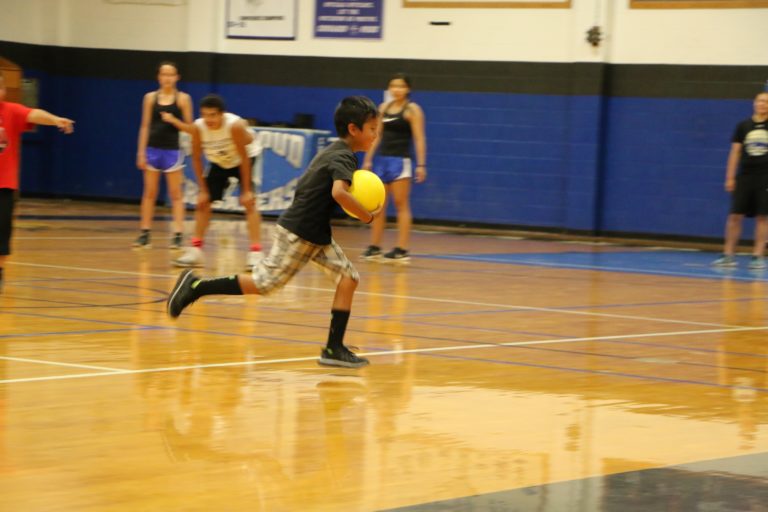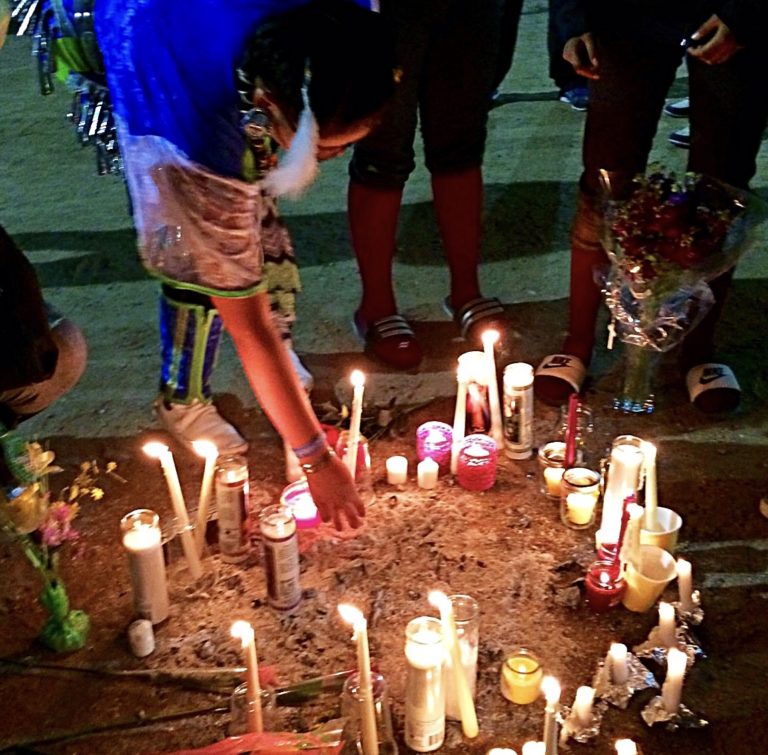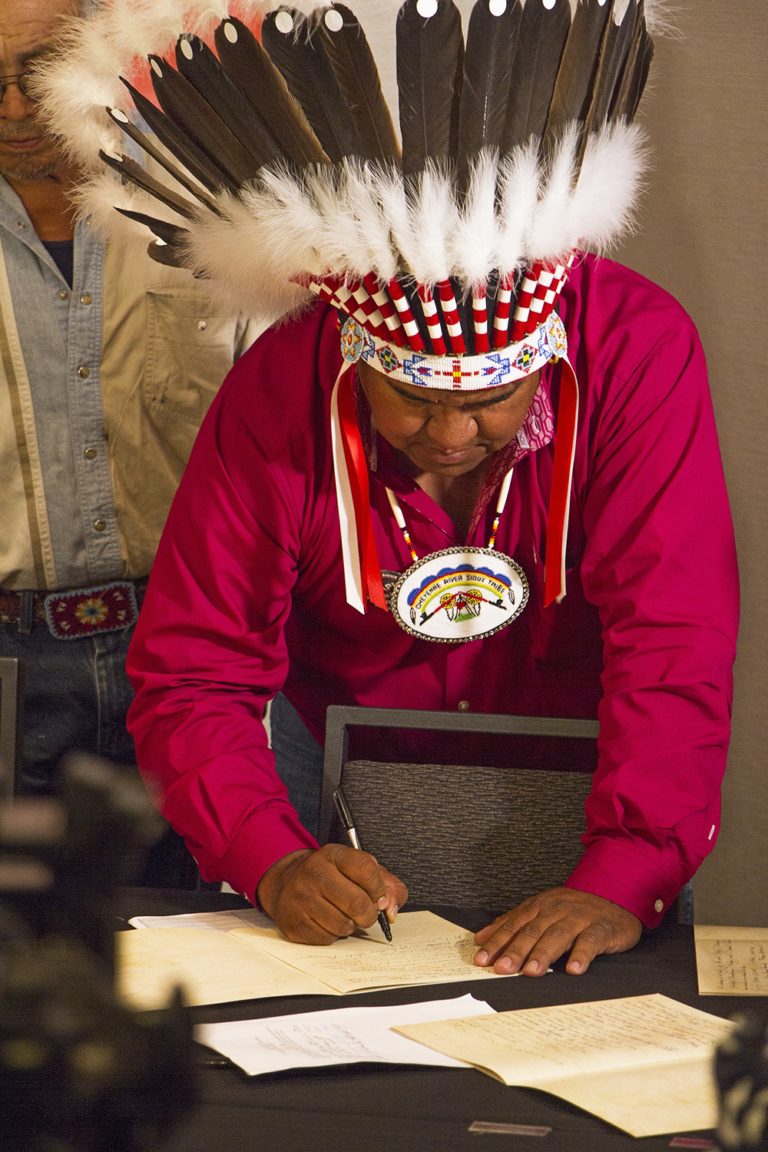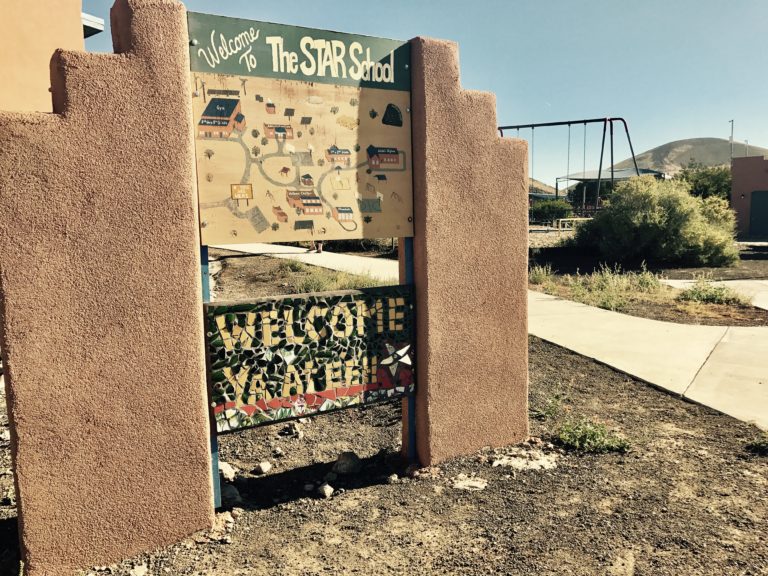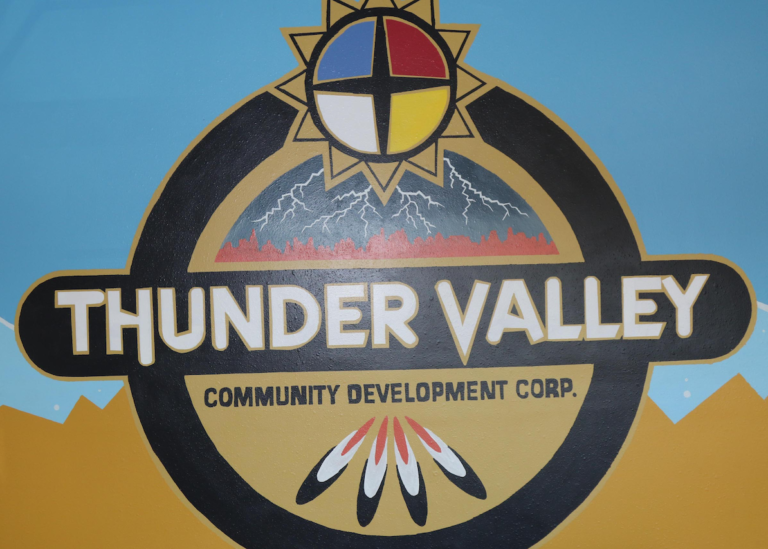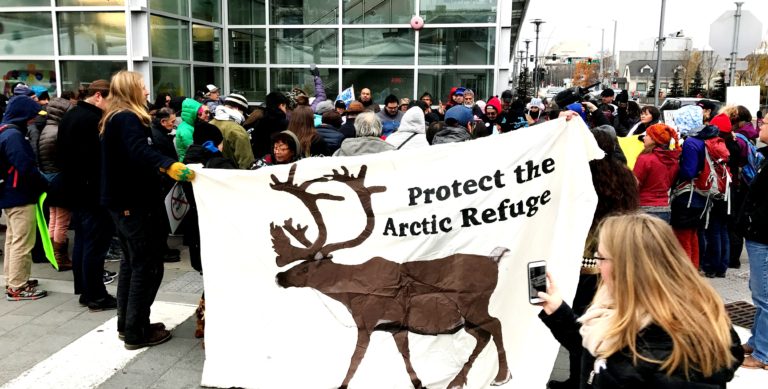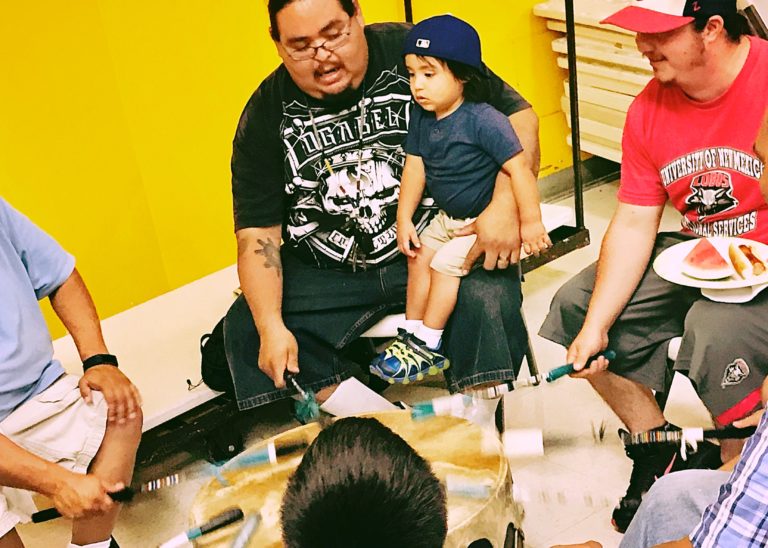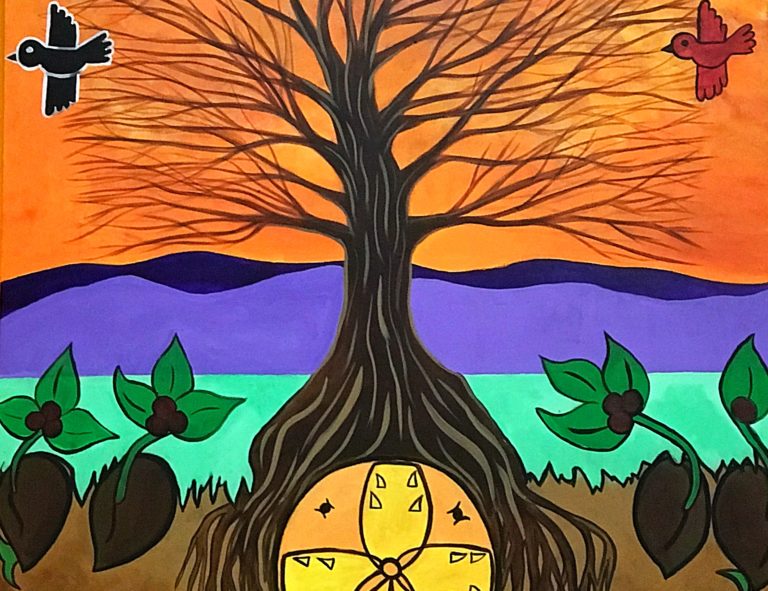Alejandro Rama loves basketball and is a mentor with Thunder Valley Community Development Corporation’s mentorship program. When Rama was growing up he would frequently turn to his coach for answers about the game, school, or whatever was on his mind. At 16, Rama now understands how important it is to have a role model when you are young.
Advocates to Trump: Racial slur harmful to Native women
Women’s advocates call President Donald Trump’s use of the name Pocahontas as a jab at U.S. Senator Elisabeth Warren disrespectful to tribes and harmful to Native women. Advocates point to the story of Pocahontas, a Pamunkey Indian, as being romanticized too often. Advocates add the Pocahontas story is in fact about kidnap and rape and sadly resonates with modern-day Indigenous women.
“To dismiss, minimize that story (Pocahontas) or to make her invisible from who she is as a human, to explain to people why that’s inappropriate is very exhausting,” said Amber Kanazbah Crotty, an advocate and Navajo Nation lawmaker.
Navajo Nation asks White House for apology and to keep word to Navajo Code Talkers
Navajo Nation tribal leaders respond to a White House event honoring Navajo Code Talkers by calling the contributions of code talkers invaluable, but cultural insensitivity shown by President Donald Trump after Trump made comments about Pocahontas.
“The statement by President Trump was disrespectful and rude,” said Navajo Nation Vice President Jonathan Nez on Tuesday in response to President Trump’s comments. “Our Navajo Code Talkers fought for courage and honor and that same respect should have been given to them yesterday at the White House. Instead that event will be remembered for entirely different reasons.”
Treaty Alliance continues to oppose Keystone XL Pipeline
The Treaty Alliance, an organization representing 150 U.S. and Canadian tribes, has voiced its opposition to the Nebraska Public Service Commission’s approval of the TransCanada Keystone XL pipeline. Nebraska regulators announced the decision on Monday. Treaty Alliance members were disappointed that the pipeline would be approved only days after an associated TransCanada pipeline in South Dakota leaked more than 200,000 gallons of crude oil.
Water first to help reduce disease
Some Native organization and advocates across the United States are seeking to get young Native people to switch from drinking sugary beverages such as soda and energy drinks to water. The Service To All Relations School, known as the STAR School, near the Navajo reservation in Flagstaff, Arizona is one place efforts are underway to encourage students to drink water and at the same time find ways to address the longstanding lack of access to clean water at their homes. Read more…
State of Change: Grassroots community development group strives for lasting systemic change
The key to Thunder Valley’s development was realizing from the start that there would be challenges with personalities, politics and available resources. Supporting each other helped in that process. But, understanding that change would take time and having the patience to accept that has been equally important in Thunder Valley’s success. Read more…
Alaska coalition begins new fight against ANWR development, mines
Organizers of a new coalition led by Alaska Native groups plan to step up their efforts on a variety of environmental issues. The group organized an initial protest at the Alaska Federation of Natives Convention in Anchorage, speaking out against oil and gas drilling in the Arctic National Wildlife Refuge and other issues. Defend the Sacred organized the march of more than 200 people during the AFN convention over the weekend. The march was timed as Senator Lisa Murkowski was about to address AFN. Read more…
Overcoming nutrition challenges
Researchers point to social determinants as contributing to the health and wellness of communities including social structures and economic systems. Social determinants of health in Indian Country often include limited health care services, overcrowded housing, lack of fitness centers and outdoor recreational areas, infrastructure needs such as roads and sidewalks, and other living conditions related to poverty. To help overcome some of these challenges, examples of resiliency can be found in Native America through individuals who promote health and wellness at the grassroots level. Read more…
Reconnecting to a health lifestyle
The United American Indian Involvement organization is currently studying ways that its traditional social outreach program program is helping improve mental health among Native Americans in Los Angeles County. As we find out in our ongoing series Health and wellness: the Indigenous way, people travel long distances to participate in the Drum, Dance and Regalia program and other events that help connect them to their cultures and other people with similar values. Organizers hope the programs help improve the statistics for people vulnerable to problems like child abuse, gang involvement, and mental illness. Read more…
Health and Wellness: the Indigenous way
Podcast: Play in new window | Download | Embed
The Centers for Disease Control and Prevention finds Native Americans and Alaska Natives are more likely to report their health is fair or poor compared to other groups, particularly Caucasians. Rates of diabetes, suicide and chronic illnesses are often higher in Native communities. National Native News is teaming up with New Mexico In Focus and the USC Annenberg-Center for Health Journalism this fall for a series highlighting health and wellness in Native America. PBS. The series will examine some of the ways Indigenous people in California, New Mexico and Arizona are taking control of their mental and physical health. Read more…
- « Previous Page
- 1
- …
- 6
- 7
- 8
- 9
- 10
- …
- 12
- Next Page »
